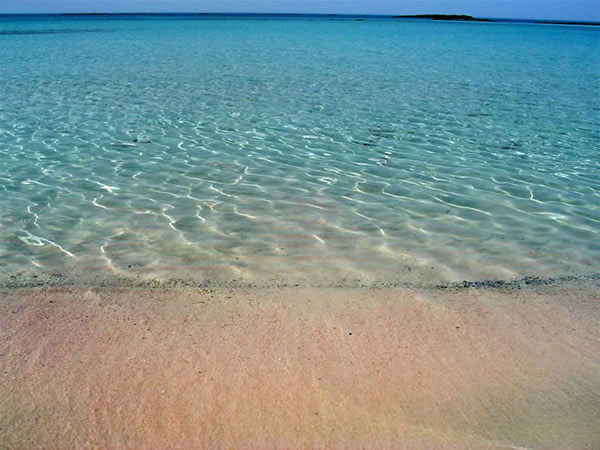The island of Kos is located in the eastern part of the Aegean Sea near the coasts of Turkey and has a Mediterranean type climate characterized by warm temperatures in summer and mild temperatures in winter, the rains are concentrated in the winter months, while the wind, as in most of the Greek islands blow […]
Located in the center of the Aegean Sea, the Cyclades archipelago is characterized by a mild and dry climate, with winter temperatures that rarely drop below 10 ° C and with sometimes high summer temperatures but which are often mitigated by the breath of Etesian (Meltem), the characteristic wind that constantly blows in the Greek […]
The Cyclades archipelago is a group of islands in Greece located in the Aegean Sea, between Attica and Eubea in the north-west, and the island of Crete in the south. The Cyclades islands are the islands that have the most typical characteristics of the islands of Greece. They are in fact barren and arid islands, […]
Greece power plugs and sockets, telephones
GREECE DOCUMENTS Documents: For entry into Greece, the European citizen must have a passport or identity card. Even children and minors must have their own passport or their personal identity card. Driving license: To drive a rental car in Greece it is sufficient to have a national driving license. Obviously your license must not be […]
FERRIES TO GREECE The most used means of getting to Greece are ferries. There are ferry connections from Italy, Cyprus and Turkey. How to get to Greece from Italy: Modern ferry ships make the connections between Greek and Italian ports. Ferries to Greece leave from the Italian ports of Venice, Ancona, Brindisi, Bari, and Trieste […]
Kos: the island of Hippocrates and beaches
The island of Kos (290 sq km, 31,000 inhabitants) is located in the Aegean Sea, in the northern part of the Dodecanese archipelago. The island is located north of Nissyros and south of Kalymnos. The coast of Turkey is located a very short distance to the northeast, Kos is in fact enclosed between the Turkish […]
The island of Santorini (73 sq km, 13,600 inhabitants) is located in the Aegean Sea, in the southernmost part of the Cyclades archipelago. The island is located south of Ios and west of Anafi. The large island of Crete is located just 120 km south of Santorini. The island is also known by the name […]

The island of Mykonos (86 sq km, 9,400 inhabitants) is located in the Aegean Sea, in the central-northern part of the archipelago of the Cyclades islands. Located east of Syros, southeast of Tinos and north of Naxos and Paros. The island is among the most important and popular tourist destinations in the Cyclades. The most […]
The island of Rhodes, which is the largest of the Dodecanese archipelago, is located in the southeastern Aegean a short distance from the Turkish coast. Rhodes is not just sea, nature and sun. The port of Rhodes town is rich in history, an authentic open-air museum. The city and citadel of Rhodes are a popular […]
Rhodes: the island of the Colossus
The island of Rhodes (1,400 sq km, 120,000 inhabitants) is located in the Aegean Sea, in the south-eastern part of the Dodecanese archipelago. This island is located north-east of the island of Karpathos and south-west of the coast of Turkey, from which it is only about twenty kilometers away. The island is the largest in […]
How to get to Athens. Flights to Athens
HOW TO GET TO ATHENS: FLIGHTS AND AIRPORT Athens Airport (Eleftherios Venizelos Airport (ATH)) is the most important airport in Greece. Here most of the flights from abroad land, and from here the connections to the islands of the Hellenic archipelagos leave. Other important airports are those of Thessaloniki in Macedonia, the airport of Heraklion […]
The city of Athens is full of tourist attractions. The capital of Greece is known worldwide for the presence of the ancient Acropolis and the most famous Greek temple, the Parthenon, a majestic building built between 440 and 430 BC. The whole area of the acropolis is a complex of buildings without equal in the […]
Athens, the capital of Greece, is located in the province of Attica and its metropolitan area extends over much of the territory of Attica. The city is surrounded by the Egaleo, Parniths, Penteli and Imittos mountains. Together with its suburbs and the nearby city of Piraeus, which is its port, Athens forms a metropolitan complex, […]
The most important center of the east coast of Crete is the town of Agios Nikolaos, located along the north-east coast in front of the Mirabello gulf. Just north of the city is the beautiful Venetian fortress of Spinalonga, built on an island in the bay. Another Venetian fortress is located in the town of […]

The west coast of the island of Crete boasts some of the most beautiful beaches on the island, including the wonderful Balos beach. THE BEACH OF ELAFONISSI Elafonissi (Elafónisos), perhaps the most beautiful sea in Crete, is a truly enchanting place for the transparency of the water and the pink reflections of the sand. This […]